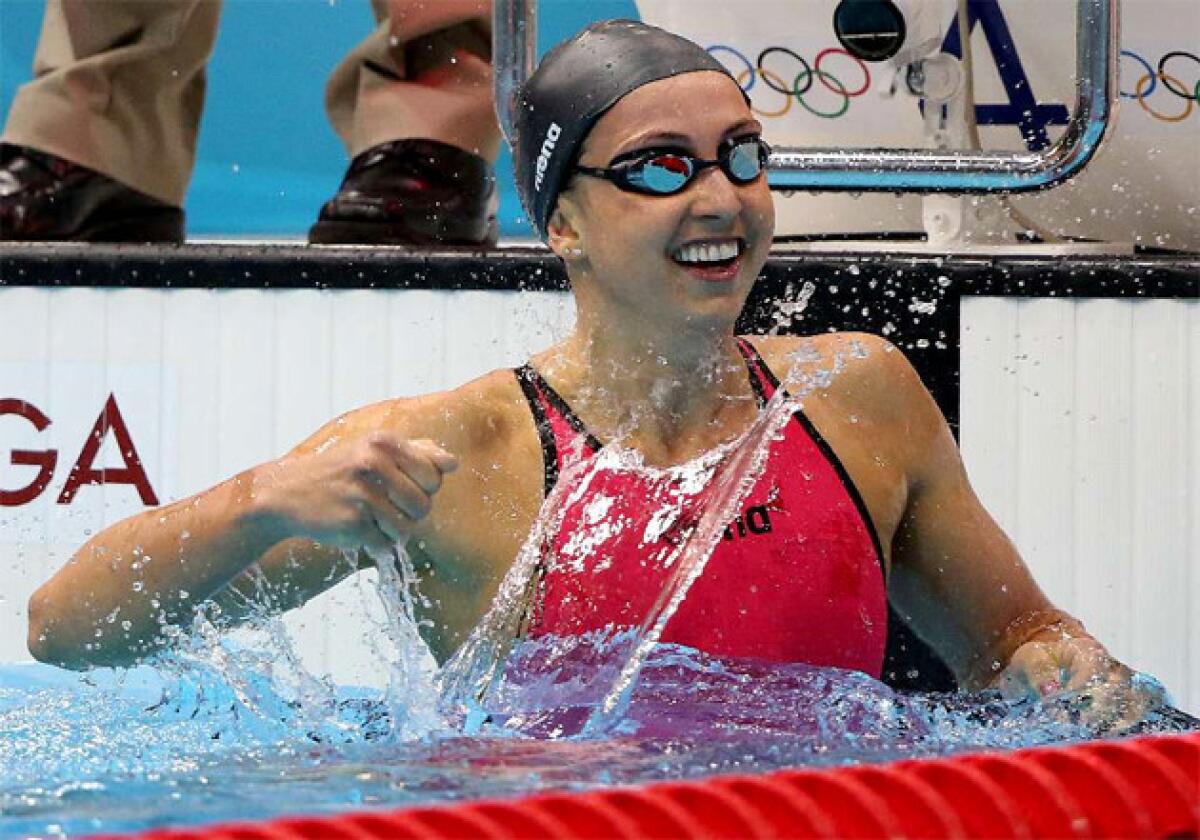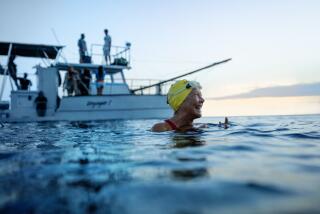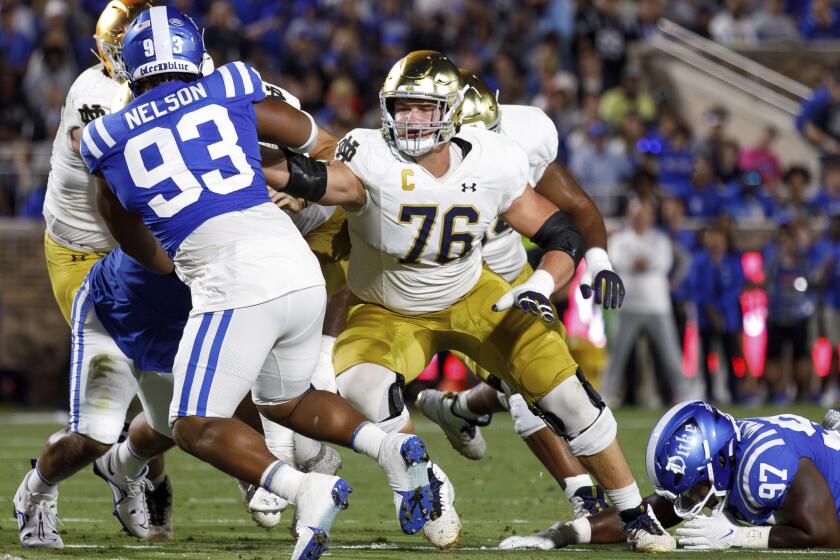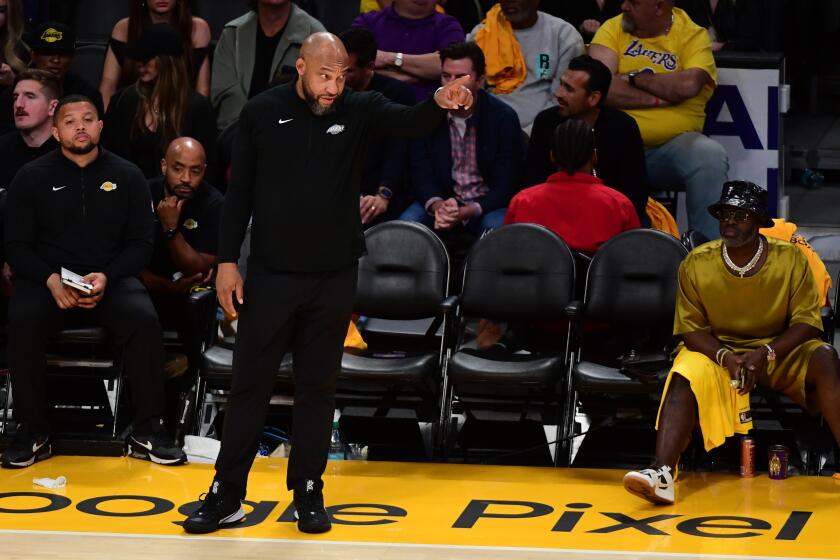Swimmer Rebecca Soni’s Olympic heroics have a (painful) back story

When Rebecca Soni took down one of the hallowed barriers in swimming — becoming the first woman to go under 2 minutes and 20 seconds in the 200-meter breaststroke — the moment resonated on multiple levels.
Not only did her star turn come on the world stage, at the London Olympics, the modest Soni became the first American swimmer to repeat a gold-medal performance in the breaststroke, winning in 2:19.59. Four years prior, Soni upset the heavily favored Leisel Jones of Australia to own the podium at the Beijing Olympics in the 200 breaststroke.
What made Soni’s London moment last August transcend other world records in the pool is the back story of her Olympic experience. Few outside her inner circle knew that the six-time Olympic medalist Soni was managing a painful back condition, and she didn’t find out the true extent of it until after the Olympics.
The pain running down her right leg came from a cyst on her tailbone, which pressed down on the nerve. Soni first thought it was an injured hamstring. It affected her flexibility, and while Soni downplayed the pain, she said it interfered with her start and turn, but that it was not a problem other than that.
“It was probably about a 5,” she said in an interview with The Times, of a pain scale of 1 to 10. “But the problem was that it never, ever stopped. I’d be lying in bed and it would be throbbing for no reason, like a fire going down my leg.”
Soni said the pain started about a month before the Olympic Trials in Omaha. She made the decision not to see the doctor, preferring to almost trick herself into thinking it was not a major problem.
The former USC swim star is the definition of self-effacing, and she wanted to stress in a recent interview that she didn’t want to the injury to be a “huge focus.”
“At the moment, it’s feeling a little bit better from not training so much. I still feel it all the time,” Soni said. “It’s just a nagging thing. It’s not really getting in the way anymore. It’s more, ‘Oh just my leg again.’ It’s no problem. I just accept it.”
Surgery was not an option.
“From what I understand, it’s not bad enough to be worth the risk,” Soni said. “It’s just the nerve. … To me, it’s not worth it to risk. There’s so many problems that could come up if one little thing goes wrong.”
For now, she is not sure about her future in the pool, beyond taking off this year. Soni has applied to graduate school at USC in applied psychology and is trying to work out plans to travel to Guatemala, a trip which would be a byproduct of her partnership with the United Nations Foundation’s Girl Up campaign.
“This year is really the time to start the rest of my life,” Soni said.
Typically, the period following the Olympics can be a difficult one for high achievers. In fact, Soni, 26, had a challenging time with the post-Olympic letdown after Beijing, and that experience prepared her for 2013.
“It definitely laid the groundwork,” Soni said. “I knew to expect it. I think it’s a little bit amplified this time because I am not in the water every day. It’s almost an extra stress. Even being a little more lost about where I’m supposed to be, if that makes sense…
“It’s hard every time you pass a big milestone in your life — something you’ve been looking forward to do so long. Even though I’m thrilled about the Olympics and how it went, it’s not the same when you wake up every morning when you don’t have that strong goal inside of you.
“It’s definitely been a tough time but an exciting time. At least I try to tell myself that.”
Years ago, a swim coach told Soni, then a teenager, that she would be the first woman to break 2:20 in the 200 breaststroke.
“He was going on this whole rant: ‘You’re doing so well, you are going to be the first one to go under 2:20.’ I was like, ‘Are you kidding me? I can’t even break 2:30.’
“I remembered that conversation and started to really believe it was possible eventually. I used his motivation and excitement about it to fuel my everyday training.
“I just had to sit back [before London] and trust this was going to happen and I did all the right work to get to that point. It’s a pretty tough thing to get up on the blocks and realize that you’ve been training your entire life for this one thing and realize this is your last chance, your only chance to do it.”
Soni pumped her fist twice when she spotted the world-record time in the 200 breaststroke.
“It was never good enough until that one race. I went a little crazy,” she said, laughing.
ALSO:
Every spring is a scorcher for Howie Kendrick
Looking forward to nine more years of Albert Pujols
Hank Conger’s throwing woes prompt Angels to go shopping
More to Read
Get our high school sports newsletter
Prep Rally is devoted to the SoCal high school sports experience, bringing you scores, stories and a behind-the-scenes look at what makes prep sports so popular.
You may occasionally receive promotional content from the Los Angeles Times.







